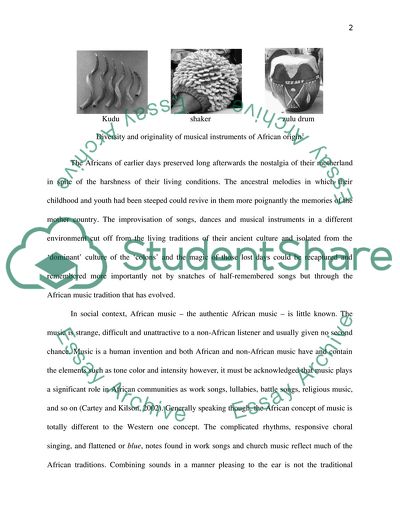Cite this document
(“African Music Essay Example | Topics and Well Written Essays - 1250 words”, n.d.)
African Music Essay Example | Topics and Well Written Essays - 1250 words. Retrieved from https://studentshare.org/music/1552756-african-music
African Music Essay Example | Topics and Well Written Essays - 1250 words. Retrieved from https://studentshare.org/music/1552756-african-music
(African Music Essay Example | Topics and Well Written Essays - 1250 Words)
African Music Essay Example | Topics and Well Written Essays - 1250 Words. https://studentshare.org/music/1552756-african-music.
African Music Essay Example | Topics and Well Written Essays - 1250 Words. https://studentshare.org/music/1552756-african-music.
“African Music Essay Example | Topics and Well Written Essays - 1250 Words”, n.d. https://studentshare.org/music/1552756-african-music.


